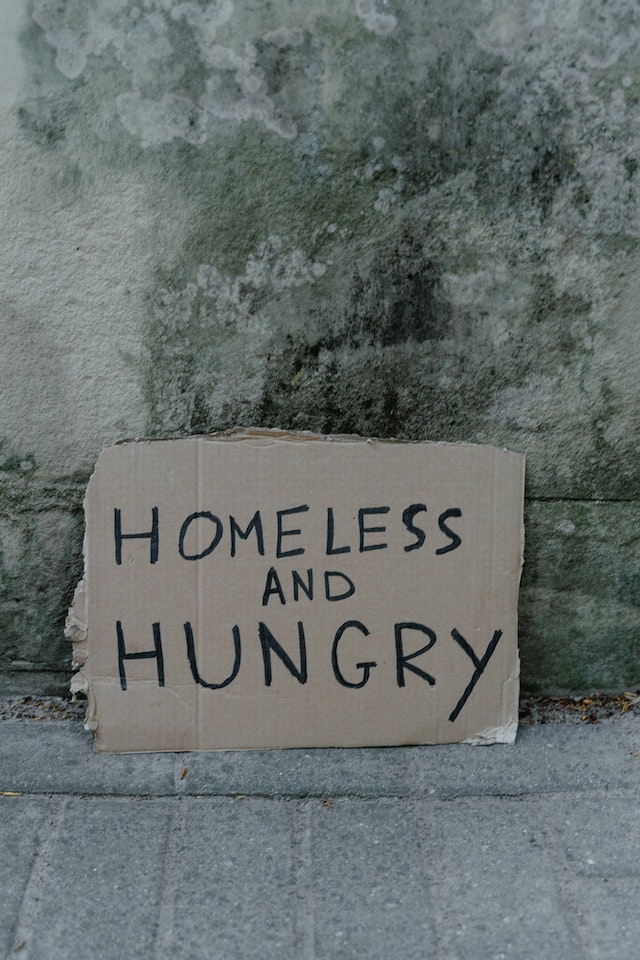Food banks are crucial for people who are having difficulty managing their finances. They are especially important for homeless individuals, as they not only offer nutritious food but also provide a positive outlook and assistance. Considering the increasing number of individuals who are homeless in the nation, the role of food banks has become even more significant in addressing hunger and poverty.
So how do food banks help out the homeless community? Read more as we’re going to talk about this topic in today’s article.
How Food Bank Organizations Work?

Non-profit organizations called food banks collect and distribute donated food to those who are in need. They join forces with local businesses, faith-based groups, and individuals to gather the donations. They then distribute the food to people who may be homeless, low-income families, and individuals who are experiencing financial difficulty due to job loss or illness.
For the homeless community, food banks like the Second Harvest of the Greater Valley in Manteca, CA can provide a much-needed source of nutrition. Homeless individuals often struggle to find enough food to eat on a regular basis, and may rely on soup kitchens or other charitable organizations to provide their meals. Food banks can supplement these meals by providing additional food items such as fresh produce, protein, and dairy products.
Food banks do more than just provide meals; they also offer community and support, and often work with larger organizations to offer additional services, such as job training, housing assistance, and healthcare. This can help address the underlying causes of poverty and homelessness by connecting people with the resources they need.
The Food Bank’s Role In Helping The Homeless Community
One way that food banks help out the homeless community is by providing access to fresh and nutritious food. Many homeless individuals rely on inexpensive fast food or convenience store snacks to sustain themselves, which can lead to health problems such as obesity, diabetes, and heart disease. Food banks can provide a variety of fresh fruits and vegetables, whole grains, and lean protein sources that can help to improve the health of those who are struggling to get by.
Food banks can also help to address the issue of food waste. In the United States, it is estimated that up to 40% of all food produced is wasted. Much of this food is still perfectly good to eat, but is thrown away due to cosmetic imperfections or overproduction. Food banks work to collect and distribute this surplus food to those who need it most, reducing waste and helping to feed the hungry.
Another way that food banks help out the homeless community is by providing a sense of dignity and respect. Homeless individuals often face discrimination and stigma due to their living situation, which can make it difficult to access basic services or to feel valued as members of society. By providing nutritious meals and other resources, food banks can help to show that homeless individuals are valued and respected members of their community.
Food banks also play an important role in emergency situations. For example, in the aftermath of a natural disaster or other crisis, food banks can quickly mobilize to provide food and supplies to those who have been affected. This can be especially important for homeless individuals who may not have access to other resources during a crisis.
In addition to providing immediate assistance, food banks can also help to address the underlying causes of homelessness and poverty. Many food banks operate as part of larger organizations that offer a range of services to those in need, including job training, housing assistance, and healthcare. By connecting homeless individuals with these resources, food banks can help to break the cycle of poverty and homelessness.
Finally, food banks help to raise awareness about the issue of hunger and poverty. By working with local businesses, faith-based organizations, and individuals, food banks can build partnerships and coalitions that can advocate for policies and programs that address the root causes of these issues. This can include improving access to affordable housing, increasing funding for anti-poverty programs, and supporting initiatives that promote economic opportunity and mobility.
Conclusion
Overall, food banks are an essential resource for the homeless community. They provide not only nourishing meals, but also a sense of community and support. By providing access to fresh and nutritious food, helping to reduce food waste, and connecting homeless individuals with other resources, food banks can help to address the underlying causes of poverty and homelessness.
As we continue to face challenges such as rising rates of homelessness and food insecurity, food banks will play an increasingly important role in building stronger and more resilient communities.

